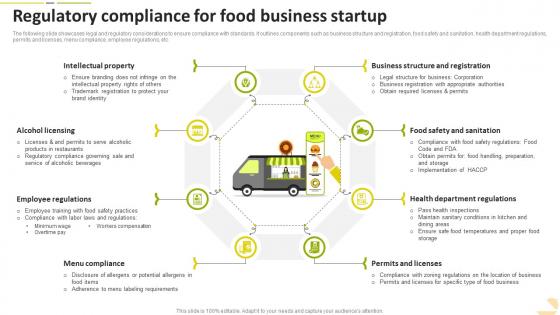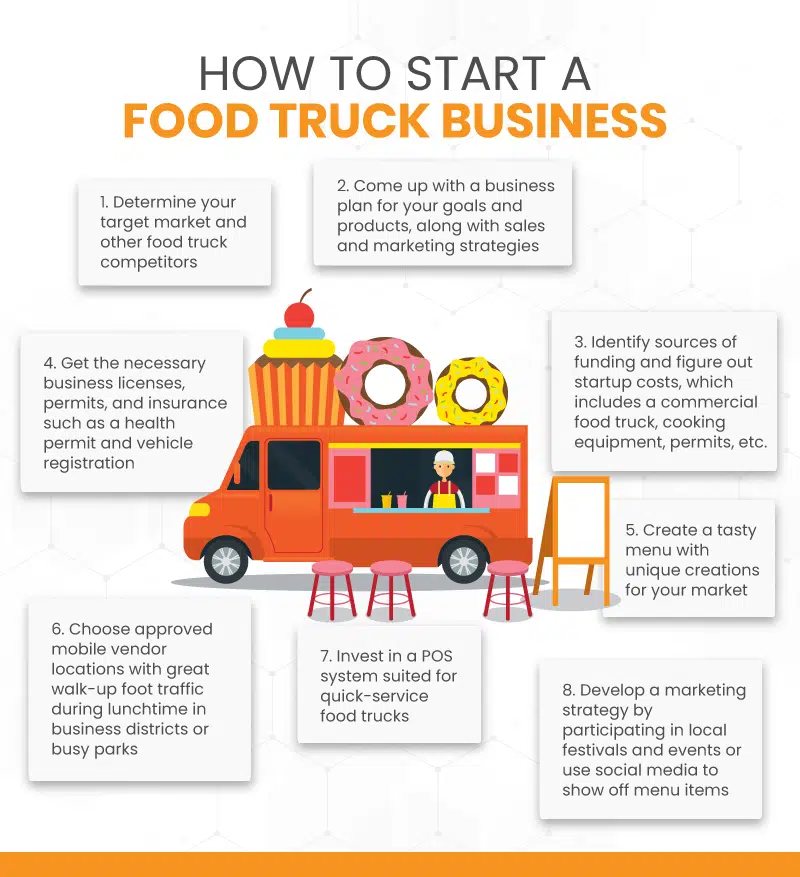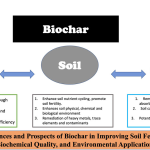Are you dreaming of starting your own organic food business? The growing demand for organic products presents a golden opportunity for you to enter this thriving market.
But before you can start selling those delicious organic treats, there are crucial steps you must take to ensure a successful launch. Navigating the maze of setup requirements, licensing, and marketing strategies can be daunting, but it doesn’t have to be.
We’ll guide you through the essential steps you need to take, providing you with the knowledge and confidence to turn your organic food business dream into a reality. From understanding the legalities to crafting a compelling marketing plan, we’ve got you covered. Keep reading to discover how you can carve out your niche in the organic food industry and attract the loyal customers you desire.

Launching An Organic Food Business
Starting an organic food business requires careful planning. Obtain necessary licenses to ensure compliance with local laws. Focus on effective marketing strategies to highlight the benefits of organic products to attract health-conscious consumers.
Launching an organic food business can be both an exciting and challenging endeavor. The demand for organic products is on the rise as more people become health-conscious and environmentally aware. However, setting up your business requires careful planning and a clear understanding of the necessary steps to ensure success.Understanding The Organic Market Landscape
Before diving into the organic food business, it’s crucial to understand the market landscape. Research current trends, consumer preferences, and your competition. Visit local farmers’ markets and organic stores to see what’s selling. This hands-on approach will provide valuable insights into your potential customers’ needs.Defining Your Product Line
What unique products do you want to offer? Consider starting with a small range of items that you can produce exceptionally well. For instance, if you have a passion for making organic jams, focus on that niche initially. Offering products that highlight your expertise can build a strong reputation in the organic market.Obtaining The Necessary Licenses
The organic food sector is heavily regulated. You’ll need to obtain specific licenses and certifications to sell organic products legally. Check with your local agricultural department for the exact requirements. Remember, being certified as organic is a powerful marketing tool that builds consumer trust.Setting Up Your Supply Chain
A reliable supply chain is the backbone of your business. Partner with trustworthy suppliers who meet organic standards. If possible, visit their farms to ensure they adhere to organic practices. A strong relationship with suppliers can also lead to better deals and consistent product quality.Creating A Memorable Brand
Your brand should tell a story that resonates with your target audience. Focus on your values and the benefits your products offer. Develop a compelling brand name and logo that reflect your organic ethos. This will help you stand out in a crowded market.Developing A Marketing Strategy
How will you reach your customers? Use social media to showcase your products and share your journey. Engage with your audience through informative content about organic living. Consider collaborating with influencers who can help amplify your message and reach a wider audience.Building An Online Presence
In today’s digital age, an online presence is essential. Create a user-friendly website where customers can learn more about your products and make purchases. Optimize your site for search engines to attract organic traffic. A strong online presence will help you connect with customers beyond your local area.Engaging With Your Community
Become an active part of the local community. Attend events, host workshops, and offer samples at local markets. These activities not only increase your visibility but also build relationships with potential customers. Community engagement is a powerful tool for word-of-mouth marketing. Launching an organic food business is a journey filled with opportunities and challenges. With thorough research and strategic planning, you can carve out a niche in the growing organic market. Are you ready to take the first step toward building a sustainable and successful business?
Essential Licenses And Certifications
Starting an organic food business involves several key steps. Among these, obtaining the right licenses and certifications is crucial. These ensure compliance with health and safety standards. They also help build trust with consumers. Knowing which licenses you need can be overwhelming. This guide simplifies the process, focusing on essential requirements for your organic business.
Organic Certification
Organic certification verifies that your products meet organic standards. The USDA offers this certification in the United States. It requires an inspection of your farm or facility. The certification process checks for the use of organic practices. These include no synthetic fertilizers or pesticides. Maintaining records of your farming methods is essential.
Food Safety License
A food safety license ensures that your products are safe for consumption. This license is issued by local health departments. It requires an inspection of your production facility. The inspection checks cleanliness and food handling practices. Training employees in food safety is often required.
Business License
A business license allows you to legally operate your organic food business. This is obtained from your local government. The process involves filling out an application. Fees vary depending on location and business size. This license ensures that you comply with local business laws.
Product Labeling Requirements
Product labeling must meet specific regulations. Labels should include ingredient lists and nutritional information. For organic products, labels must meet USDA guidelines. Proper labeling helps consumers make informed choices. It also ensures compliance with food labeling laws.
Environmental Permits
Environmental permits may be required for your organic business. These permits address waste management and water use. They ensure that your business operations are eco-friendly. Checking with local environmental agencies is necessary. Obtaining these permits demonstrates a commitment to sustainability.
Effective Marketing Strategies
Setting up an organic food business requires careful licensing and smart marketing strategies. Build trust with transparent sourcing practices. Promote products through social media and local events to reach health-conscious consumers.
In the organic food business, effective marketing can be the difference between thriving and just surviving. As a business owner, you want to reach your target audience with messages that resonate and inspire action. With the right strategies, you can elevate your brand’s visibility and connect with customers who value sustainable and healthy food choices.Build A Strong Online Presence
A robust online presence is crucial for marketing your organic food business. Start with a user-friendly website that clearly communicates your mission, product offerings, and contact information. Include engaging content like blog posts or videos to educate your audience about the benefits of organic food. Social media platforms like Instagram and Facebook can amplify your reach. Share visually appealing content showcasing your products, behind-the-scenes stories, and customer testimonials. Engage with your audience by responding to comments and messages promptly.Leverage Content Marketing
Content marketing can establish your brand as a thought leader in the organic food industry. Create informative articles, guides, and videos that address common questions or concerns about organic foods. This can help build trust and credibility with your audience. Consider collaborating with influencers or bloggers who are passionate about organic living. Their endorsement can introduce your brand to a wider audience and lend authenticity to your marketing efforts.Utilize Local Marketing Tactics
Local marketing can be particularly effective for small organic food businesses. Participate in farmers’ markets, local fairs, or food festivals to connect with potential customers face-to-face. Offering free samples can entice customers to try your products and foster word-of-mouth referrals. Partner with local businesses that share your values. For example, you could collaborate with a local yoga studio or health club to cross-promote your products. This can increase your exposure to a health-conscious audience.Offer Promotions And Loyalty Programs
Promotions and loyalty programs are excellent tools to attract and retain customers. Consider offering discounts or special deals to first-time buyers to encourage them to try your products. Implement a loyalty program that rewards repeat customers with points or discounts. This not only incentivizes continued purchases but also helps build a community around your brand.Engage In Community Outreach
Community outreach can enhance your brand’s reputation and foster customer loyalty. Host workshops or informational sessions on topics like organic gardening or healthy cooking. This can position your business as a valuable resource in the community. Volunteer or sponsor local events to show your commitment to community well-being. This not only promotes your brand but also aligns with the values of your target audience. Are you ready to implement these strategies in your organic food business? Each tactic offers a unique way to connect with your audience and grow your brand. Which strategy will you try first?
Overcoming Common Challenges
Starting an organic food business can be rewarding. Yet, it comes with challenges. From licensing to marketing, each step requires careful planning. Understanding common hurdles helps in creating solutions. This section explores these challenges and offers strategies to overcome them.
Licensing And Compliance
Securing the right licenses is crucial. Organic certification involves strict standards. Meeting these standards ensures product integrity. Research local regulations early. Consult with experts to avoid mistakes. Keep records organized for inspections.
Supply Chain Management
Finding reliable suppliers is key. Look for partners who share your values. Quality and consistency are essential. Establish strong relationships with suppliers. Regular communication helps avoid disruptions.
Product Quality Assurance
Maintaining product quality builds trust. Implement strict quality control processes. Regular testing ensures safety and purity. Educate your team on best practices. Customer satisfaction relies on high standards.
Communicating value is vital. Craft clear, honest messages. Highlight health benefits and sustainability. Use social media to reach audiences. Engage with your community regularly. Authenticity resonates with consumers.
Building Consumer Trust
Trust is the foundation of loyalty. Transparency in sourcing and production is vital. Share your journey with customers. Address concerns promptly. Encourage feedback and act on it. Trust leads to repeat business.
Conclusion
Starting an organic food business involves careful planning and effort. Obtaining the right licenses is essential. This ensures compliance with local laws. Effective marketing strategies help attract customers. Focus on clear communication and engaging content. Highlight the benefits of organic products.
Use social media to reach a wider audience. Collaborate with local farmers and suppliers. This builds trust and fosters community support. Remember, success requires patience and persistence. Stay informed about industry trends. Adapt to changing customer needs. With dedication, your organic food business can thrive and grow sustainably.


